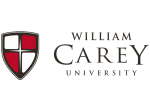 We can all relate to the challenges of growing up and entering teenager-dom. The hormones, the life lessons, the mixed emotions, the hard classes, suddenly everything is overwhelming and awkward, and no one quite knows how to fit into their own body yet. It’s during those awkward years, that a cool high school teacher can make a huge difference in the way students navigate growing into themselves. Teachers working in secondary school—middle or high school—are the patient supporters of students as they build on the fundamentals of elementary school and prepare for the responsibilities of adulthood. In many cases, you’ll even be able to teach a specific subject, such as math or history. You don’t have to be torn between pursuing your favorite subject or a career in teaching—you can do both with an online secondary education degree program. This course of study will show you how to successfully instruct students in grades 6-12, preparing you for an uplifting, rewarding, and dependable career.
We can all relate to the challenges of growing up and entering teenager-dom. The hormones, the life lessons, the mixed emotions, the hard classes, suddenly everything is overwhelming and awkward, and no one quite knows how to fit into their own body yet. It’s during those awkward years, that a cool high school teacher can make a huge difference in the way students navigate growing into themselves. Teachers working in secondary school—middle or high school—are the patient supporters of students as they build on the fundamentals of elementary school and prepare for the responsibilities of adulthood. In many cases, you’ll even be able to teach a specific subject, such as math or history. You don’t have to be torn between pursuing your favorite subject or a career in teaching—you can do both with an online secondary education degree program. This course of study will show you how to successfully instruct students in grades 6-12, preparing you for an uplifting, rewarding, and dependable career.
THE CAREER PATH
Secondary education teachers play a huge role in the lives of their students, and they must be unquestionably passionate about the work that they do to set the next generation up for a successful future. They work in private and public schools, providing an education typically for grades sixth through eighth, although they can also cover some grades in elementary or high school. Secondary education professionals are typically less responsible for overseeing one group of children and are more responsible for providing an education to an array of students in a particular subject—like science or history. They help students build on the fundamentals of their early education and prepare them for the more difficult concepts of higher classes as well as for navigating the new social demands of growing older. Aspiring professionals will typically need to concentrate their academic specialization in one of the standard core subjects including math, science, reading, writing, and social studies. In a secondary education setting, teachers may also choose to specialize in an alternative subject such as:
- Career and Technical Education – Preparing students to enter a profession such as auto repair or health care
- Physical Education – Teaching students the fundamentals of an active and healthful lifestyle
- Special Education – Working to ensure that classrooms fulfill the needs of all students, regardless of background or abilities
Like other types of teachers, secondary education professionals will perform these types of job duties on any given day:
- Creating lesson plans for the appropriate developmental and learning needs of students
- Assessing students for abilities, strengths, and weaknesses to overcome learning challenges and prepare for standardized testing
- Grade assignments and tests and communicate with other parents and educators to support student development
Teachers in secondary education will generally need to be prepared with an understanding of childhood and adolescent development and psychology in order to work with students from a variety of backgrounds. This is the type of field that requires teachers to be creative in using a hands-on approach to helping students understand abstract concepts and solve problems.
The Department of Labor describes the growing number of students enrolled in secondary education as a positive trend for the demand on these professionals, which are expected to grow faster than the national average in the upcoming years. That being said, the competitiveness for these positions can be expected to fluctuate with the unpredictable government funding between states in the coming years. The career is rewarding in many ways beyond just the reliability, however—it offers an average salary of more than $55,000 each year, it also offers a spiritual fulfilment, the opportunity to make an impact on the lives of students, and usually includes summers and holidays off.
WHO IS THE IDEAL CANDIDATE?
Teaching in secondary education comes with its rewards as much as its challenges. Professionals in secondary education must be prepared to have the patience and understanding to navigate the social and physical changes that are being experienced by students at any given time. They must be open to working with other professionals and groups to meet the many intersectional needs of students. Working in secondary education requires the stamina to keep up with the energy and fluctuations of students, as well as the communication needs to share information in a way that is understood by many different types of individuals including students, staff, parents, and administration. If you’re interested in finding creative and resourceful ways to introduce new concepts and find ways to challenge adolescents to expand on their skills and knowledge, then you may be ready to look into starting a career in secondary education.
WHAT SHOULD I LOOK FOR?
Depending on the state, most teachers are required to have at least a bachelor’s degree and a certification or licensure. If your dream is to work as a public school teacher, make sure the online secondary education degree program you choose is accredited by the National Council for Accreditation of Teacher Education (NCATE). Check with your state department of education to ensure that any online courses you take are pre-approved to meet teacher certification standards in your home state.
Most online secondary education degrees are offered at the master’s level. Most of these are specific to both a subject area (such as science) or grade level (such as grades 5-9 or grades 9-12). Your courses will be split between education and your particular discipline of choice. Popular online secondary education degree choices include focuses in science and math. English as a Second Language (ESL) and special education teachers are in great demand at the secondary level, as well. Virtually any teacher certification area can be completed entirely online as a secondary education major.
As a secondary education major, your classes are designed to prepare you for teaching adolescents in a school setting. You will study educational psychology, teaching methods and technology in the classroom. If you are earning an online bachelor’s for teacher certification, you will be required to complete three to six months of practice or demonstration teaching inside a local public school. Many programs will also require developing professionals to engage in hands-on student-teaching programs where they will perform certain tasks under the supervision of a mentor in the school system.
COST
Our rankings reveal that the average cost of an online master’s in secondary education is just under $19,000. Keep in mind, however, that the most affordable programs will cost under $15,000. Click on a program below to view tuition, accreditation, and student reviews.








